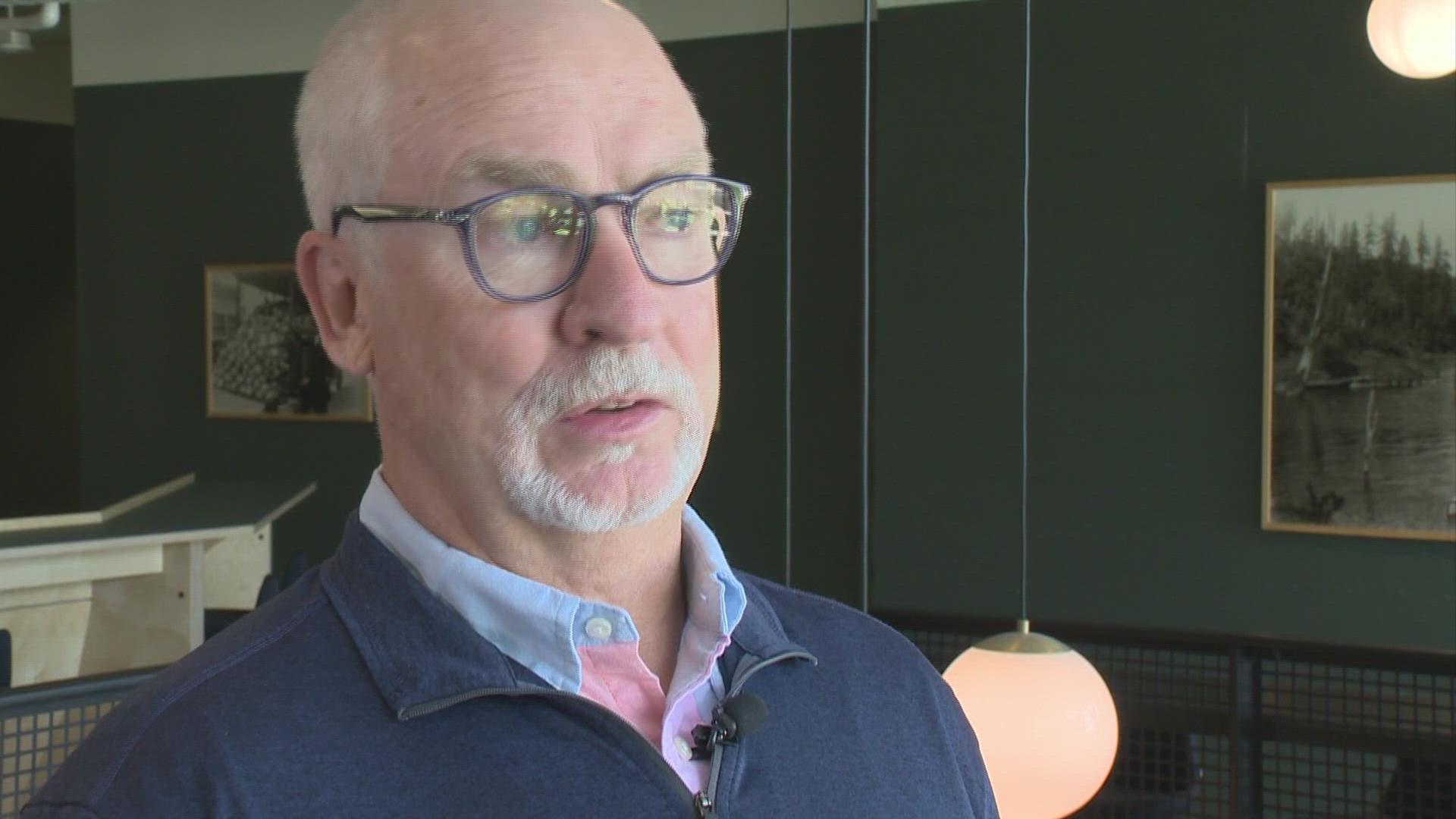PORTLAND, Oregon — Now that humans identify themselves as being part of named generations, let's meet the second to youngest group. Generation Z are the young people from 10 to about 25 years old. (The very youngest are known as Generation Alpha.) The Economist newspaper described Gen Z as "more educated, well-behaved, stressed and depressed" compared to previous generations.
A new mentorship program in the Portland area is targeting Gen Z to help. SetPath is a nonprofit that pairs young people with a full-time mentor to help develop a "life plan" for a generation that feels lost.
"I saw this as a real, incredible opportunity to meet a need and what I would consider a crisis," said Paul Hogan, chief hope officer with SetPath. He spent 28 years as a teacher, coach and over a decade as principal at Portland's Jesuit High School before joining the nonprofit.
"The young people that come to SetPath aren't necessarily in crisis," Hogan explained. "They're just looking for a way to navigate what can seem like a really overwhelming world."

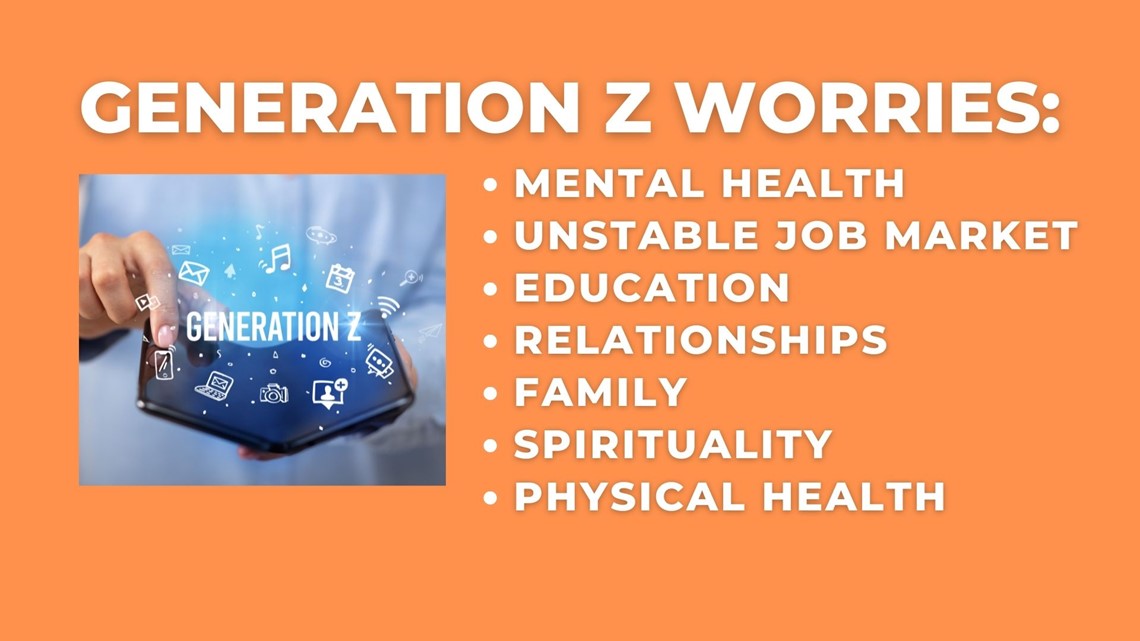
Generation Z is dealing with crumbling mental health, a highly unstable job market and questions about higher education like, "Is college worth it?" and "When should I go, now or later?'"
Friendships and dating after a pandemic are hard. So is family life. Then there may be spiritual components and questions, not to mention physical health pressures and concerns. Gen Z talks about rampant instability and tension in politics, civility, their immediate family dynamics and the job market. They crave calm and to know it's going to be okay.
SetPath works with people between ages 16 and 25, called "Planners," and pairs them with young professionals who have walked that road themselves and have experience working with young people, like a former youth minister. The young professionals are known as "Guides." Together through a lot of listening, they create the beginnings of a stable, step-by-step life plan in 90 days, checking in every week, then sending them to fly on their own. It's all free thanks to fundraising and grants.
"If you have a plan, and if you've got somebody to talk to about it, life can seem a lot less overwhelming," Hogan said.

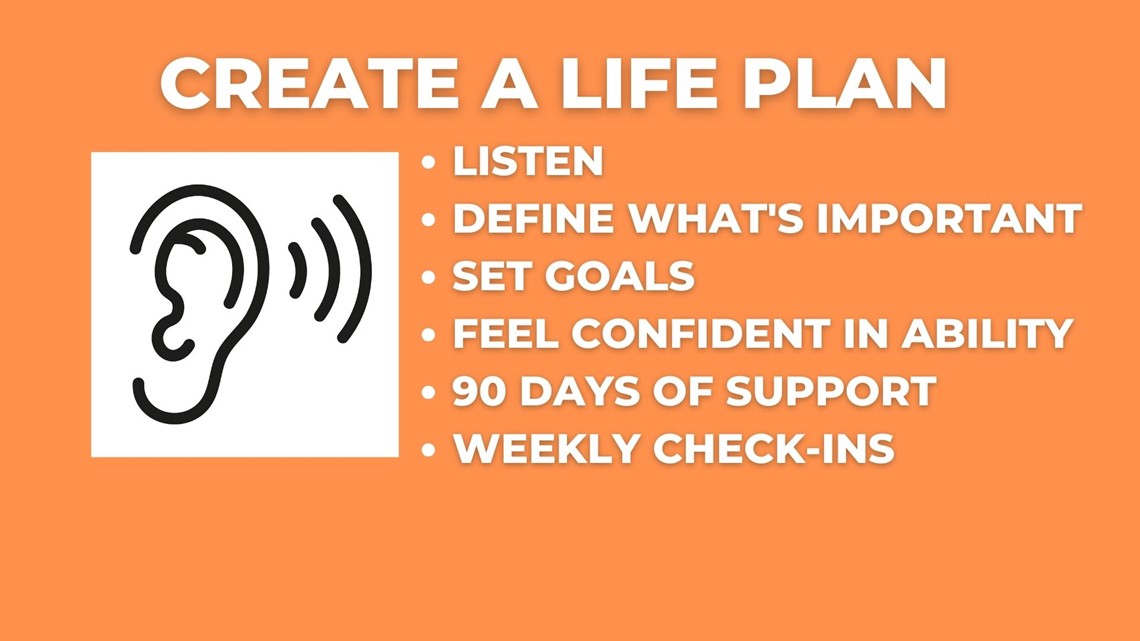
Bella Marin is a recent SetPath Planner and "graduate" of the program.
"SetPath came in at the perfect time because in the middle of me being very confused, I had a mentor come alongside me and guide me," she said.
Marin is 19. She only had two years of normal high school before the pandemic took it remote. Now she's graduated, said she doesn't hang out with any of her old friends anymore because of the awkwardness and isolation of remote life. Marin is taking online community college courses now to get her theology degree and has a part-time job.
"I was definitely confused on how my life was going, how my relationships were going," Marin said. "And then when the pandemic hit, I definitely saw like, okay, who are the real ones in my life, who's gonna stick by me when times get difficult."

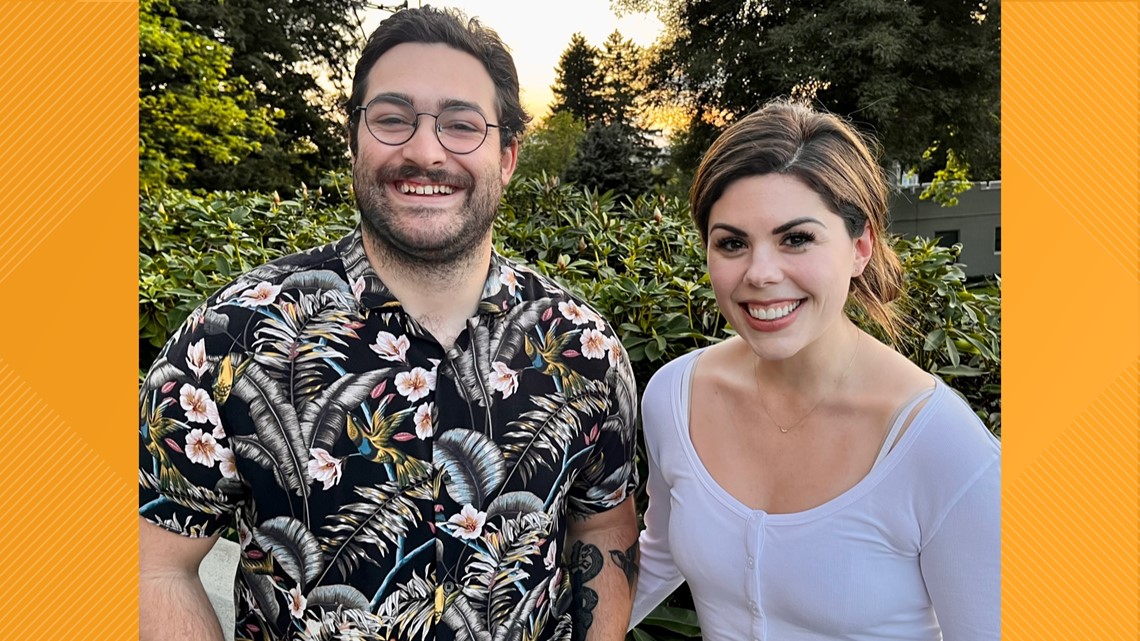
Kendra Vollstedt was Marin's SetPath Guide.
"So it starts with really the legacy aspect of your life. So not just who do you want to be, but how do you want to be remembered?" she said.
Vollstedt is a former youth minister who's worked with young people her whole career and has strong mentors of her own, as well as lots of leadership coaching.
"I'm not your mom, and I'm not your therapist," she laughed. "I'm actually just somebody that's mentoring you, that's walking beside you and that doesn't have an agenda for your life. I think that agenda piece is also what separates us out a little bit. I think as a parent, it can be really easy to want certain things for your kid. Desire certain things and start to instill that in their life. I come in because I don't know the fullness of who you are and what you want. I listen. And then I ask those pointed questions from a place of truly wanting them to be successful on their own accord," Vollstedt said.

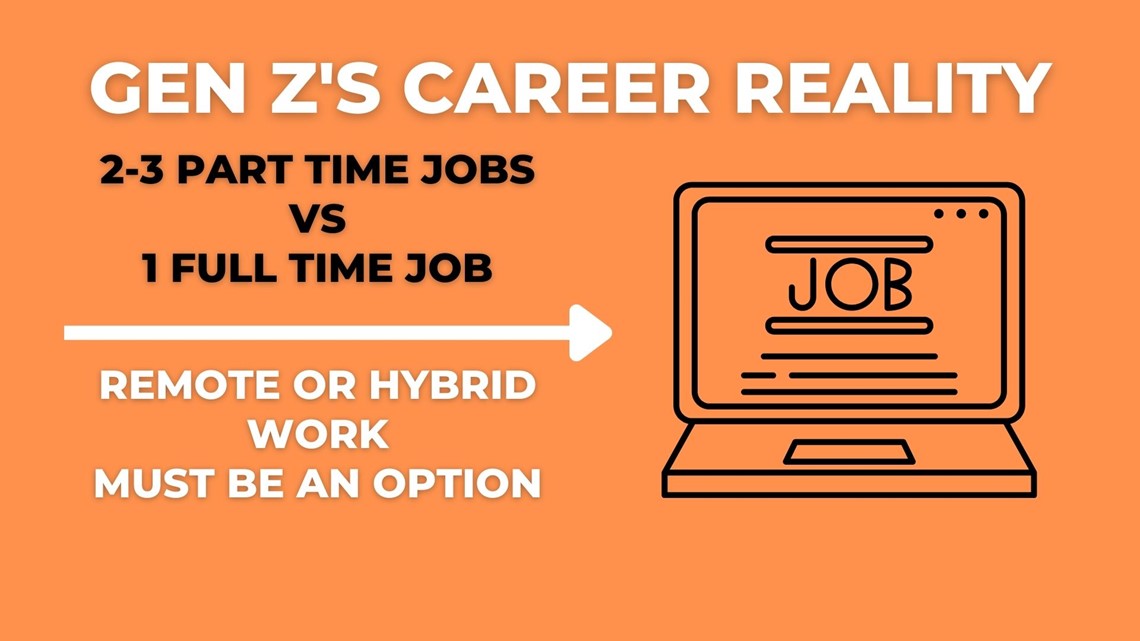
So what is Gen Z's career reality? Vollstedt said most of the Planners she helps have several part-time jobs simply because they have to; they can't find a full-time job that supports them. Remote or hybrid work must be an option also.
"Especially in the midst of the pandemic, there already were the overwhelming aspects of life. What job am I gonna take? Where am I gonna move? How am I gonna live? Those were already at play for this generation," said Vollsedt. "Then you factor in an entire shutdown of one's life. And so they got very hypercritical of themselves and started comparing and contrasting against all of the social media they're seeing, because that's all ultimately what they had to communicate with each other. A lot of that, I feel like, has led to this crisis a little bit, of knowing almost what they don't want more than what they do want. So I think it's like, I don't want the 40 hour week job where I'm bogged down and I can't travel and I can't see people. And I'm saying that's great, but what do you want? And I think the asking of that question is what is so paralyzing post-pandemic."
Once you set goals, how do you follow through?
Vollstedt had this advice: "We want to review our life plan for the first 30 days every single day. And then you want to shift to looking at it probably once a week thereafter. Can you put the life plan in front of you? Can you put it on the mirror while you're brushing your teeth? Can you turn your checklist into things that you're already doing? Can you partner those habits together?"
Paul Hogan said through all his years as an educator, he started to see the writing on the wall that a mentorship program like this was needed.
"Young people want what they've always wanted, which is to be physically healthy, to be mentally healthy, to find meaningful school and work. They want to have good relationships with their friends and families, but that seems to be more and more challenging to young people. And we could see this coming for many years up till now."
Finally, what has Bella Marin, the Planner, learned?
"It's important to reach out to your mentors when you're struggling, especially with being overwhelmed with not really understanding where you're at in life. It's OK to reach out because they won't always reach out to you. You're supposed to take the initiative in that situation."
She added, "It's okay not to know everything about your future, which sucks because my generation likes to know things, like, now! Even if you don't have an end goal in mind, it's okay. You're going to take steps towards getting there."
If you know a young person 16-25 that could benefit from SetPath, learn more on their website to look into the next 90-day cohort. This all runs on donations and fundraising, and they're also looking for help in that way.

